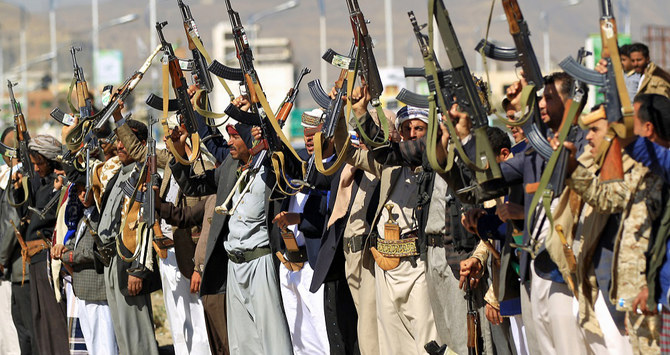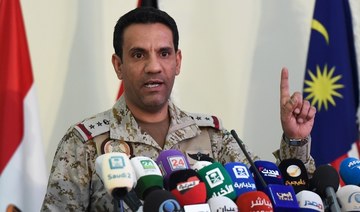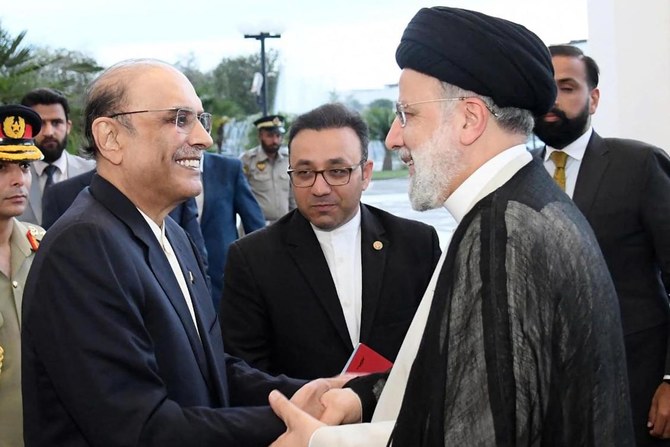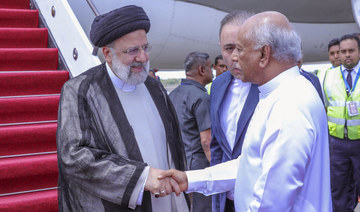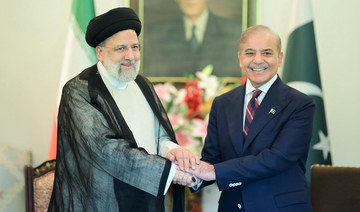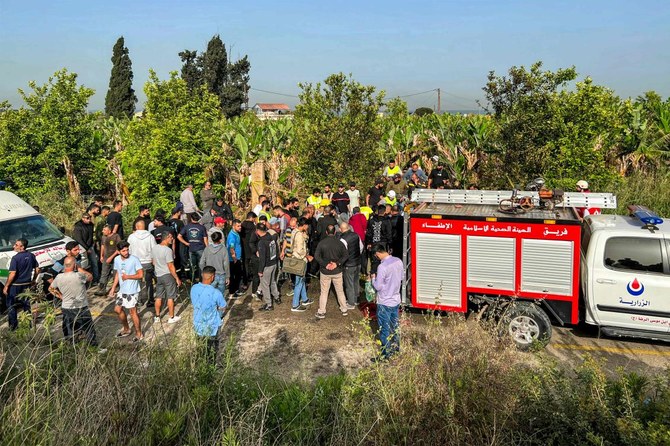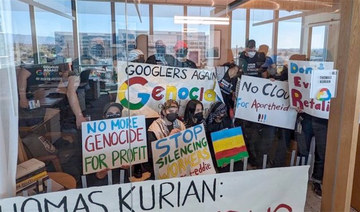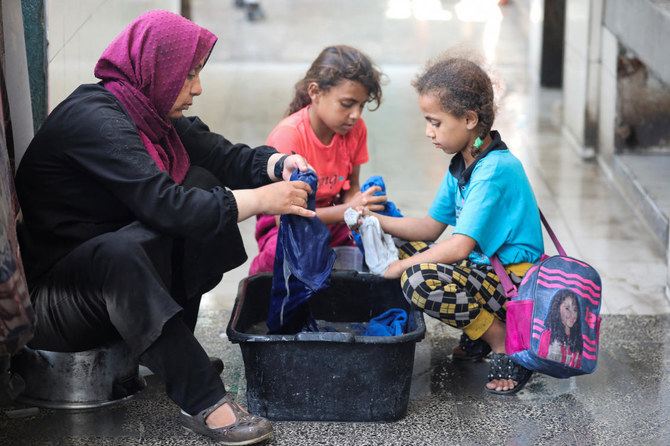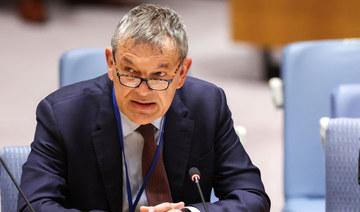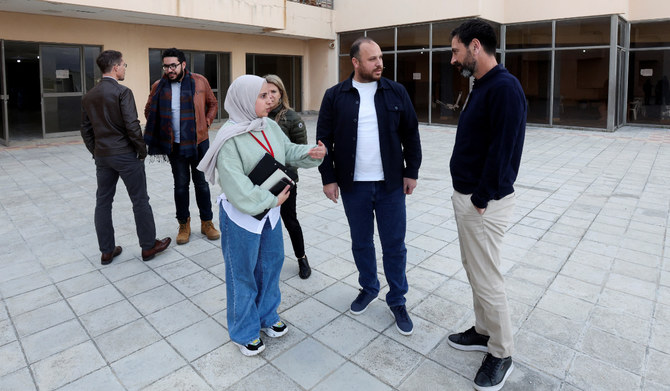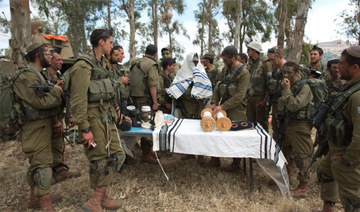AL-MUKALLA: The Houthis on Monday moved ahead with an offensive on the government-controlled Yemeni city of Marib, despite encountering fierce military resistance and strong condemnation.
Hundreds of Houthis marched toward Marib from three fronts, triggering clashes with army troops and allied tribesmen backed by air cover from Arab coalition warplanes, Yemeni government officials said.
The continuing offensive by the Iran-backed militia has killed and wounded dozens of rebel fighters and loyalists as the rebels failed to advance toward their targets, military and tribal sources said.
Government troops pushed back Houthi attacks and killed, wounded and captured dozens of fighters, said Yemeni army spokesman Brig. Gen. Abdu Abdullah Majili.
Videos and images on social media showed Yemeni army pick-ups carrying dozens of dead and wounded Houthi fighters, with others dead and abandoned on the battlefields.
Houthi officials said that their forces were close to capturing Marib.
Mohammed Al-Bukhaiti, a Houthi official, said the movement had a “divine mandate” to push government forces and the coalition from Marib, describing the offensive as a “decisive battle” for the militia.
Yemen’s Defense Ministry said the Houthis had focused their attacks on government troops in the mountainous areas of Serwah and Al-Makhdra, the main defense lines protecting Marib. Coalition warplanes carried out several sorties, targeting Houthi gatherings and military reinforcements.
The official Saba news agency reported on Monday that Prime Minister Maeen Abdul Malik Saeed called Marib’s governor, Sultan Al-Arada, to congratulate him on military successes and to express the government’s support for him, army troops and the tribesmen battling the Houthis.
Condemnation
Yemen’s foreign minister strongly condemned the Houthi push on Marib, calling it a “a blatant defiance” of the international community’s demands for ending the war in Yemen. He said it was proof that the Houthis were not serious about peace.
“This terrorist attack is a clear military escalation, and confirms once again the government of Yemen’s repeated warnings that Houthis do not believe in peace and only thrive by the sounds of weaponry,” the ministry said, warning that a Houthi invasion of Marib would aggravate the humanitarian crisis in Yemen.
“The Houthis also are still exacerbating the humanitarian crisis through their continued use of violence and targeting of innocent civilians, including the internally displaced persons who have already fled to Marib to escape from the Houthis’ many brutalities,” the ministry added.
The British ambassador to Yemen, Michael Aron, demanded the Houthis cease their offensive.
“We strongly condemn the Houthis’ targeting of Marib and Jouf,” the British diplomat tweeted. “They must stop these attacks immediately and demonstrate their sincerity in wanting peace by supporting the efforts of UN Special Envoy Martin Griffiths.”
Last month the Houthis attacked a military camp in Marib with missiles, killing at least 110 soldiers and wounding many others. They exploited the post-assault confusion among loyalists to launch ground attacks on government troops in Sanaa’s Nehim district, Marib and Jouf.
They seized control of a large swathe of land in Nehim and Hazim city, which is the capital of Jouf province. But the Houthis encountered resistance from army troops and local tribesmen as they marched toward Marib.
The militia has, for more than a year, been stuck in a military stalemate because it has been unable to seize control of new areas in Marib despite dispatching thousands of fighters.
Oil and gas
Experts argue that Marib holds strategic and financial significance for the government and the Houthis because it has oil and gas fields and is also the last major city in northern Yemen under the government’s control.
“The Houthis have sought to seize control of Marib since day one of their coup,” Ali Al-Fakih, editor of Al-Masdar Online, told Arab News. “If the Houthis invaded Marib, they would assert their full control of all northern Yemen.”
Samuel Ramani, an international relations researcher at Oxford University, said that Marib's oil and gas fields and the Houthis’ endeavor to present themselves as the sole controller of the north was fueling the current offensive.
“Marib's oil fields are hotly contested between the Houthis and the Yemeni government, as control over them would give either party an advantage in reconstruction contracts and future revenues,” Ramani told Arab News. “The Houthis also view control over Marib as vital to their bid for international recognition as the de facto governing party in northern Yemen.”
He added that the Houthis faced obstacles in their offensive to seize Marib due to the demographic and geo-strategic environment in the city.
“As Marib is mostly Sunni, the Houthis lack a natural support base in Marib, and local tribes have cooperated closely with the Hadi government and the Saudi-led military intervention in expelling the Houthis from Marib.”



